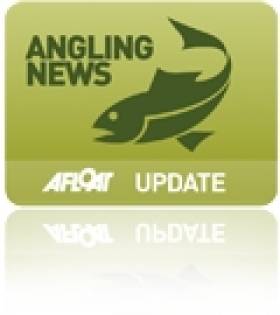Displaying items by tag: Owenduff River
Mayo Man Jailed For Serious Assault & Fisheries Offences
#Angling - A Mayo man has been sentenced to 14 months in prison for serious assault and fishery offences.
Michael Duffy, with an address at Bleankeragh, Ballycroy, Co Mayo, was before Judge Mary Devins at a sitting of Achill District Court on 12 May for sentencing in relation to a poaching incident which occurred on the Owenduff River on 26 June last year.
At an earlier hearing of the case at Westport District Court on 22 April, Judge Devins convicted Duffy on a charge of endangerment brought by the Director of Public Prosecutions (DPP) under Section 13 of the Non-Fatal Offences against the Person Act, 1997.
Duffy pleaded in relation to five fisheries offences including two charges of assault, possession of a net and illegally caught salmon, as well as the use of a vehicle in the commission of an offence.
At the earlier hearing, the court heard that fishery officers had observed Duffy and another man set a net in the Owenduff River, an important salmon and sea trout angling fishery. They observed Duffy return to the river, haul the net and leave in a vehicle.
When the officers went to stop the vehicle, Duffy reversed at speed into a gate that Assistant Inspector Gerry Stadler had closed, causing serious injury to him.
The gate was left hanging on the back of the vehicle, and Duffy and the other man got out of the car and removed the gate, before driving off and leaving the injured officer lying on the road bleeding from his head.
Assistant Inspector Stadler was brought to hospital with severe whiplash and shoulder injuries, which resulted in him requiring surgery and being unable to work for over nine months.
Commenting at the April hearing, Judge Devins deemed Duffy’s evidence “contemptuous” and “contemptible”.
At the sitting this month, Judge Devins sentenced Duffy to a total of 14 months in prison, including two consecutive sentences of six months in respect of the endangerment charge prosecuted by the DPP and assault charges brought by Inland Fisheries Ireland (IFI).
Two one-month prison sentences, also to run consecutively, were imposed in respect of the possession of a net and illegally caught salmon. The charge relating to the use of a vehicle in the commission of an offence was taken into account.
Fines totalling €1,200 were imposed, with costs amounting to €750. In the event of an appeal, recognisances were fixed on Duffy’s own bond of €600 with an independent surety of €2,400.
Duffy’s co-defendant, Michael Joe Gallagher of Knockmoyleen, will be sentenced in July, in respect of possession of a net and illegally caught salmon.
IFI chief executive Dr Ciaran Byrne commended the fisheries officers involved, in particular Assistant Inspector Stadler.
“This case highlights the dangers fishery officers face on a daily basis when enforcing fisheries legislation to protect Ireland’s precious wild salmon stocks and I must commend and thank them for their actions," he said.
“The need to protect salmon stocks in the Tullaghan Bay complex which includes Carrowmore Lake and the Owenmore and Owenduff Rivers is particularly important as the mixed stock salmon fishery in Tullaghan Bay and the Owenmore River is closed to local draft net fishermen because of declining salmon runs.”
IFI has a confidential hotline number to enable members of the general public to report incidents - 1890 34 74 24 or 1890 FISH 24. This phone line is designed to encourage the reporting of incidents of illegal fishing, water pollution and invasive species. For more information visit www.fisheriesireland.ie.
Bumper Catch at Rock House Fishery
Described by The Irish Times' Derek Evans as "one of the Great Fishing Houses of Ireland", the Rock House fishery in Co Mayo boasted banner numbers of salmon and sea trout catches this spring and summer.
April started off strong on the Owenduff River in Ballycroy, with three spring salmon weighing between 9.5lb and 12lb landed in the first two weeks.
This was followed by respectable numbers in May of 30 salmon and three sea trout. But June and July were the bumper time for angling, with thundery rain aiding the catch.
Even August proved bountiful despite lacking in fresh grilse, with 12 salmon ad 27 sea trout caught throughout the month.
"Drift netting laws appear to be having a positive effect," said Rock House's Sibylle Geffroy.
The Irish Times has more on the story HERE.































































